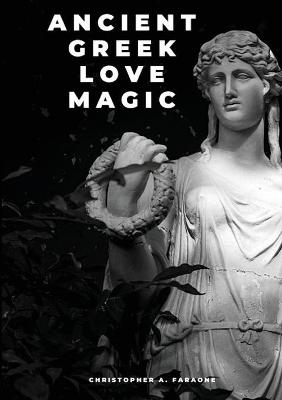
Ancient Greek Love Magic
Seiten
2021
Harvard University Press (Verlag)
978-0-674-03320-7 (ISBN)
Harvard University Press (Verlag)
978-0-674-03320-7 (ISBN)
- Titel ist leider vergriffen;
keine Neuauflage - Artikel merken
The ancient Greeks commonly resorted to magic spells to attract and keep lovers, as allusions in Greek literature and recently discovered "voodoo dolls" and magical papyri attest. Analyzing these texts and artefacts, the author reveals that gender is a crucial factor in understanding lovers.
The ancient Greeks commonly resorted to magic spells to attract and keep lovers - as numerous allusions in Greek literature and recently discovered "voodoo dolls", magical papyri, gemstones, and curse tablets attest. Surveying and analyzing these various texts and artefacts, the author reveals that gender is a crucial factor in understanding love spells. He argues that there are two types of love magic: the curselike charms used primarily by men to torture unwilling women with fiery and maddening passion until they surrender sexually; and the binding spells and debilitating potions generally used by women to sedate angry or philandering husbands and make them more affectionate. The author's analysis of these spells also yields a number of insights about the construction of gender in antiquity. Most significantly, his findings challenge the modern view that all Greek men considered women to be naturally lascivious.
The ancient Greeks commonly resorted to magic spells to attract and keep lovers - as numerous allusions in Greek literature and recently discovered "voodoo dolls", magical papyri, gemstones, and curse tablets attest. Surveying and analyzing these various texts and artefacts, the author reveals that gender is a crucial factor in understanding love spells. He argues that there are two types of love magic: the curselike charms used primarily by men to torture unwilling women with fiery and maddening passion until they surrender sexually; and the binding spells and debilitating potions generally used by women to sedate angry or philandering husbands and make them more affectionate. The author's analysis of these spells also yields a number of insights about the construction of gender in antiquity. Most significantly, his findings challenge the modern view that all Greek men considered women to be naturally lascivious.
| Erscheint lt. Verlag | 18.1.2021 |
|---|---|
| Zusatzinfo | 5 tables |
| Verlagsort | Cambridge, Mass |
| Sprache | englisch |
| Maße | 155 x 235 mm |
| Gewicht | 450 g |
| Themenwelt | Geschichte ► Allgemeine Geschichte ► Vor- und Frühgeschichte |
| Geisteswissenschaften ► Geschichte ► Regional- / Ländergeschichte | |
| Geisteswissenschaften ► Religion / Theologie ► Weitere Religionen | |
| ISBN-10 | 0-674-03320-5 / 0674033205 |
| ISBN-13 | 978-0-674-03320-7 / 9780674033207 |
| Zustand | Neuware |
| Haben Sie eine Frage zum Produkt? |
Mehr entdecken
aus dem Bereich
aus dem Bereich
auf den Spuren der frühen Zivilisationen
Buch | Hardcover (2023)
C.H.Beck (Verlag)
20,00 €
Konzepte – Methoden – Theorien
Buch | Softcover (2024)
UTB (Verlag)
39,90 €
Was Pompeji über uns erzählt
Buch | Hardcover (2023)
Propyläen (Verlag)
32,00 €


